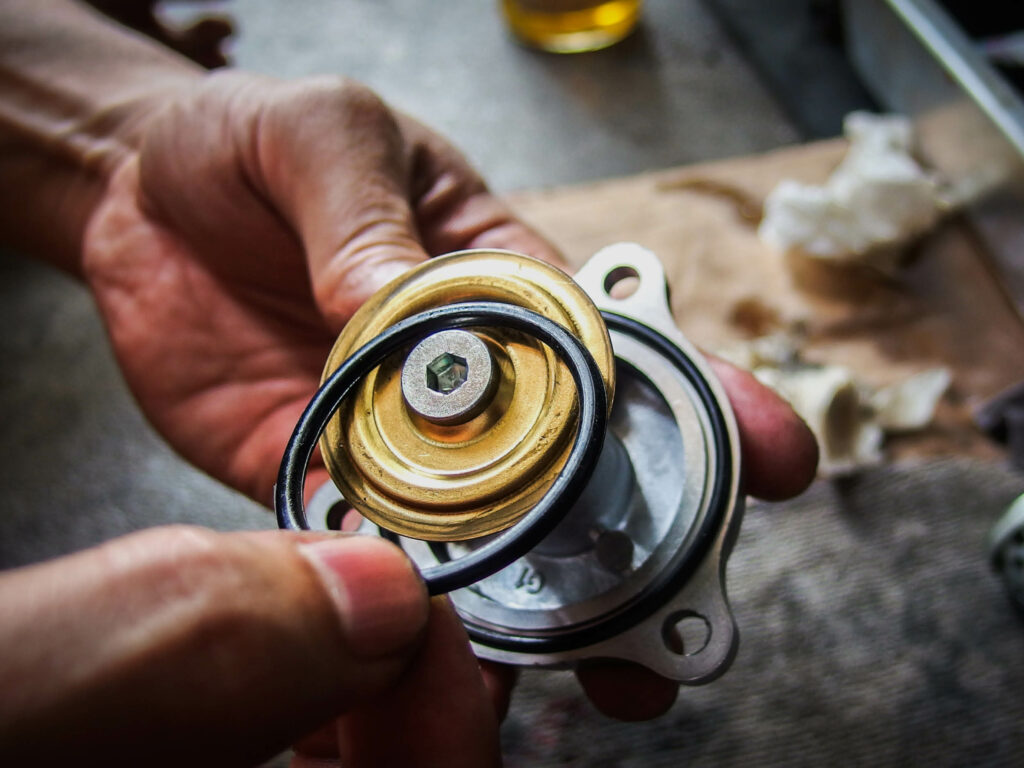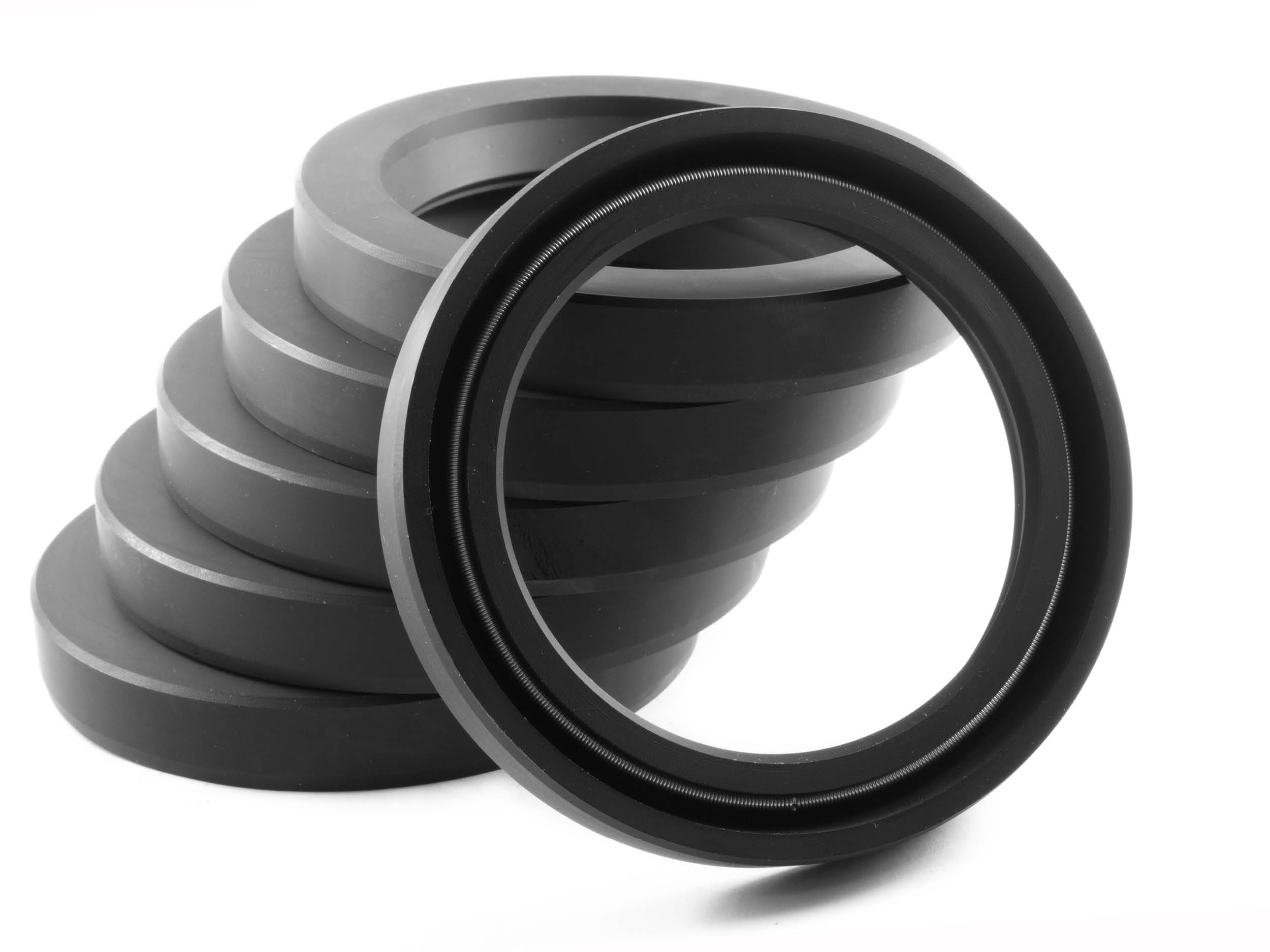Your o-ring is the only thing that stands between you and a failed seal, bringing with it dangerous messes and expensive downtime. When it comes to choosing your o-ring, not only do you want to choose the correct material and design, you also want to ensure you are working with the right people for the job you have.
Enter: our complete guide to choosing an o-ring supplier!
Below is a list of categories with related questions you should ask to potential suppliers to ensure they can meet your requirements well.
Capacity
When it comes to someone making your o-rings, capacity is often the bottom line. Do they have the time, people, and materials to meet your demands on your timeline?
What materials do they have available?
Depending on your application, you might require specific materials for your o-ring. You can review our breakdown of common materials and the applications they are best suited for, but keep in mind: not all material formulations are created equal. While there are other questions you should ask to cover quality (and we’ll get to those), you need to first ensure they offer a wide enough range of materials to meet your needs today and tomorrow as you expand.
Do they have the capacity to manufacture my o-rings in a reasonable timeframe?
If their production line is maxed out and they do not have systems in place to ensure a reasonable timeline for custom design (if needed), manufacturing, shipping, and stocking, you will want to look elsewhere. The last thing you want is to be stuck waiting for o-rings.
Do they have the capacity for quality inspections in a timely manner?
Quality inspections are critical! Having the labor and equipment to conduct them and the systems in place to keep quality consistent is paramount to an o-ring’s success.
Do they have the staff to offer quality customer support?
Quality customer support requires humans. While having robust online resources is a huge bonus, when you need help, you will want access to a human you can easily get a hold of. If they do not have the capacity to handle customer service, you might want to consider looking for another supplier.
Innovation
You are constantly innovating, so why should your o-ring supplier be stagnant? Suppliers should be consistently staying up to date with the end markets they serve, improving their formulas and designs, and improving access to resources.
Do they have a history of automation?
The best way to help you reach your goals in a timely manner is automating processes whenever possible. Are they staying up to date?
Do they have automated sorting and visual inspection?
Automated sorting allows for rapid sorting, but visual inspection and related quality control measures keep quality consistent.
Are they compounding new formulas?
One way to see if they are innovating is what they are currently doing. What is in the works?
What was the last improvement they made?
When was their last product launch or re-formulation? What was it? Do you see the merit and innovation in it?
How are they mitigating risk globally?
Mitigating global risk takes a lot of innovation! How are they adapting their processes to avoid supply chain issues, shipping mishaps, and other global occurrences that put you at risk?
Capabilities
If they are excellent innovators with the capacity to handle your needs, do they also have the capabilities?
What is their access to technology and raw materials?
Two things make innovation and quality o-rings happen: technology and raw materials. The better the access to these two things, the more likely you are to receive a quality product.
Do they have process experts on staff? What are their qualifications or use cases?
Who are their experts? Do they have use cases? What have they done in the past that was creative and innovative, helping their clients meet their needs and surpass their expectations?
Do they have the infrastructure in place to meet your industry’s needs?
For example, if you are working with pharmaceuticals or semiconductors, you most likely will need an o-ring that has been manufactured, packaged, and cleaned in a cleanroom.
Quality
At the end of the day, what stops a seal from failing? Its quality. To ensure you are receiving a consistent quality product, there are some questions you should be asking.
Do they have accredited or certified facilities?
An accreditation like ISO 9001 demonstrates a dedication to quality systems, innovative management, and evidence-based decision making. Attaining prestigious accreditations requires intense documentation, rigorous audits, and verified systems, which can help you rest assured they are doing their part to maintain quality standards.
Do they follow global industry standards?
Industry standards exist for a reason. Are they meeting yours? For example, are they getting equipment regularly calibrated and validated?
What are their quality management systems?
If they have an accredited facility, they should be able to easily tell you their systems that are in place to ensure quality.
Do they conduct regular quality audits?
Routine quality audits ensure their systems are still working properly and all quality measures are being met.
Do they have internal and external quality systems verification?
Internal verification is important, but external quality systems verification is even more important. Bringing in someone who is objective and unfamiliar with your facility and processes to verify appropriate quality measures are still in place is fundamental.
Logistics
At the end of the day, if the o-rings cannot get from their facility to yours, what’s the point? Solid logistics ensure you receive your o-rings on time and intact.
What is their delivery system?
Who is their carrier? What systems are in place? How long does it take for an order to leave their facility? You can also check reviews to see if others have had issues with shipping.
What supplies do they have stocked?
Stocked supplies are critical, especially if you need frequent and large amounts of standard size o-rings. Their stock extends also to how they can cover blanket orders and emergency stocking orders.
Do they have a shipping plan in place in the event of a shipping strike or other interference?
What happens if their carrier goes on strike? This is one risk mitigation factor that is major to you.
Do they have restocking agreements?
If you will regularly need your o-rings restocked, you should consider a re-stocking agreement. This helps ensure that you stay fully stocked on your o-rings and don’t spend critical time waiting for more.
Customer Support and Communication
Last but certainly not least, you should consider their customer support and communication. It is critical that you have access to the help and support you need, especially if installing a custom product.
What kind of technical support do they offer?
Whether you need help installing an o-ring or determining the right material you need, you will want to know the level and kind of technical support your supplier offers.
Do they offer local and international live customer support? In other words, how easy is it to talk to a human?
We’ve all been there before: endlessly stuck in an automated phone tree until it ultimately tells you to look on their website and hangs up. Or maybe you don’t even get on the phone… Instead, you are stuck for hours searching for the right contact online, but the only person you can get on the line is a sales person who can’t help you. So one thing you need to be very sure of is how easy it is to talk to a human when you need help.

O-Rings Suppliers Hard at Work
There is a lot that goes into excelling as an o-ring supplier, so we figured instead of telling you about how we meet all the above criteria, we would show you a use case demonstrating the lengths we go to for our customers.
An industrial conglomerate came to us looking for a metal over molded multi-cable lock. They were facing labor shortages, so they ultimately ended up needing us to take over their entire high-volume line. It was critical we find a solution fast as the product in place was causing injury to workers when it went wrong.
Our team of experts went to work. Our ISO 9001 accredited facilities had the capacity, technology, capabilities, and staff to make short work of this customer order. We ended up finding a solution that refined their processes, eliminated injury and accidents, and reduced demands on staff.
Now, we provide this customer with 15 SKUs!
So are you ready to stop the search for an o-ring supplier and find your solution instead? Talk to our team today.
